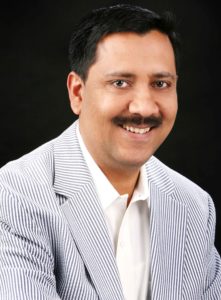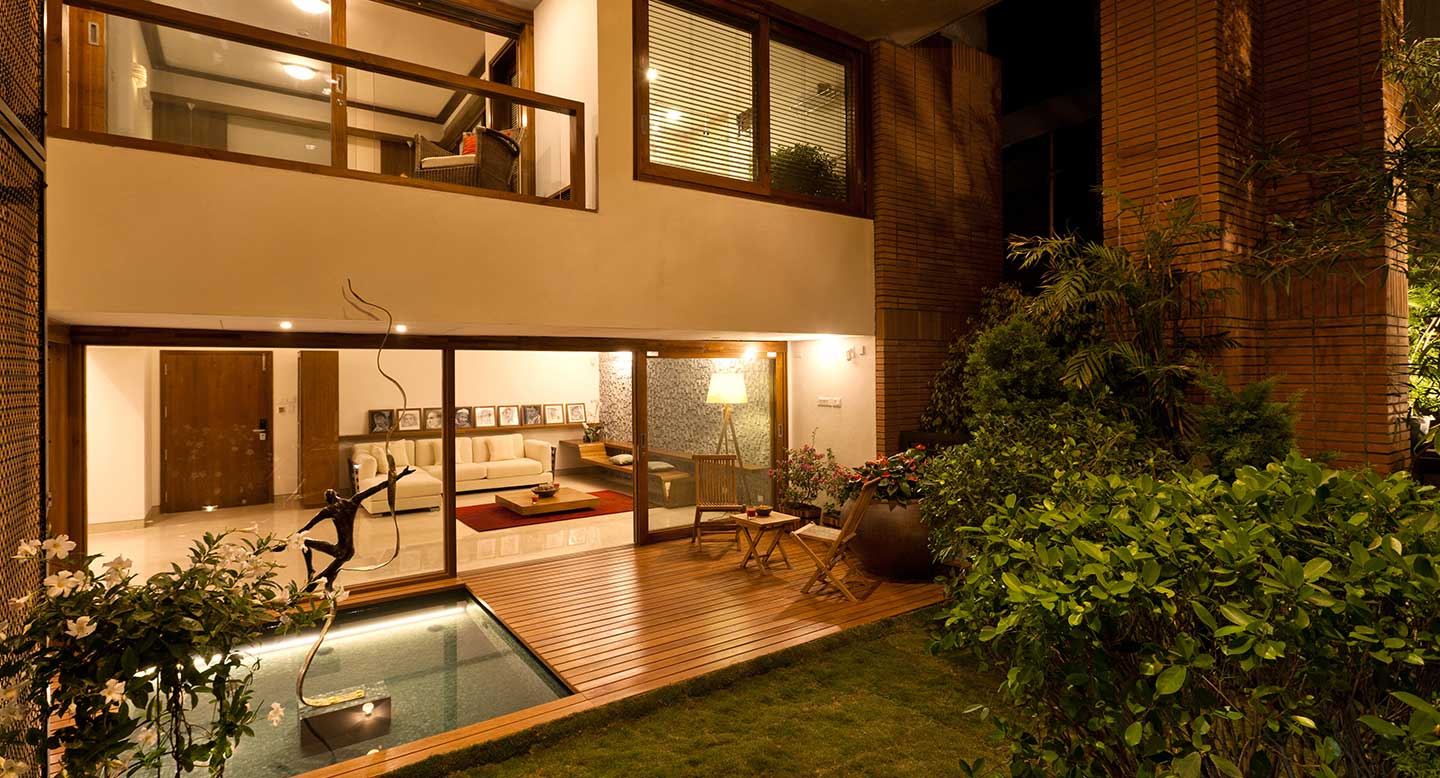Backed by PremjiInvest & Brookfield Asset Management Inc, Total Environment is defying design norms in India’s real estate industry by creating customised, sustainable living spaces for its customers. While it began as a design-led architectural firm, it has now also forayed into the hospitality space, with the setting up of Windmills Craftworks, Oota & The Terrace

Kamal Sagar’s passion to turn entrepreneur in the real estate cum architecture space came into being because of a personal experience he had when searching for a house in Bengaluru. “This was in 1995. I was looking for one-bedroom apartments in the city and I realised that the design and aesthetic was not great,” he recalls. Sagar took his time to develop on the observation; after graduating, he took up a job with Omni Architects at Kentucky for a brief period and later returned to India to design sustainable properties at the Poonawalla Stud Farms in Pune. In fact, he completed the project in a span of eight months, just in time for the planned visit by 250 delegates from 22 countries, for the Asian Racing Conference at Mumbai. “I believe natural materials have more character and age gracefully, and so, in these buildings, I used exposed wire-cut bricks sourced from Kerala, and employed a special technique with the help of steel spacers to bring out the character of each individual brick. Eventually these wire-cut bricks became our signature feature and an integral part of our design vocabulary,” he explains.
During his early days, while Sagar faced several failed attempts when trying to get developers to accept his design ideas, he eventually set out on his own to develop and construct projects per his standards. Thus was born Total Environment in July 1996.
Creating A Sustainable Design
Central to Total Environment’s design philosophy are several ideas, from green roofs that keep the interiors warmer in winter, cooler in summer and reduce rainwater run-off, to large sliding windows with generous overhangs and pergolas to let in plenty of natural light. “We do this not with an intention of ‘differentiating’ ourselves or creating a USP. Nor did we start by serving a certain niche audience,” explains Sagar. All the initiatives were a result of a desire to solve the problems that existed, using an authentic approach, with meticulous attention to detail and in a manner that would evoke positive emotions.
In fact, the company also has a Centre of Excellence, made up of a small team that focuses on identifying and implementing sustainable design ideas, product innovations and construction practices. These could be as simple as ceramic flow regulators in every faucet, that can save up to 200 litres per day, per home, or storm water drains with deep percolation pipes at every 30 feet, to take the rainwater down to replenish ground water tables. “Our priorities remain unchanged and our innovations will continue to come from this focused approach,” he adds.
For several years, TE has been custom designing homes with large teams of architects. Around 2006, realizing that this was not going to work with the new scale of operations, the company created a software platform that would allow customers to design their homes on their own
From the time of founding, the company has created its own standard to calculate the saleable area, which is ‘Carpet Area / 80 per cent’ (or Carpet Area x 1.25). Other firms provide as low as 60 per cent, and so, Total Environment property appears more expensive as it is priced on a lower base. “To overcome this challenge, we have created a strong focus on setting up a powerful marketing communication and sales engine in the company – which includes people, structure and systems,” he explains.
In December 2014, the company secured Rs 60 crore from PremjiInvest, the personal investment arm of Wipro chairman Azim Premji, which was deployed for the construction of ongoing projects. A Rs 300 crore investment from HDFC Capital in 2016 was used to replace debt in its project, ‘Pursuit of a Radical Rhapsody’. And, the venture received Rs 800 crore from Brookfield Asset Management Inc in August 2017, which is being deployed across five of its ongoing projects. A growing business, Total Environment is currently looking for equity funding for its hospitality business.
Building Out A Services Arm
The company undertakes end-to-end property management to serve its customers beyond handover of homes. “There isn’t any competitor benchmarking per se, since we do not offer the service as a stand-alone proposition. This is only for our existing properties,” explains Sagar.
By staying close to its properties, Total Environment is able to understand what works and what doesn’t, and considers this more as an opportunity to interact with customers and fine-tune its proposition. “Property management is also among our best sources of design feedback,” he points out.
The company also runs a subsidiary service business, Total Environment Hospitality, which has three different F&B outlets under it – Windmills, Oota and The Terrace. The company plans to open more outlets in newer geographies, including Mumbai and the US.
On Company Culture & Hires
Total Environment is a 603-people strong team including architects, engineers, craftsmen, property managers, corporate functionaries and other subject matter experts. The company has instituted a campus recruitment program for fresh graduates in architecture, civil and structural engineering from top schools including IIT, BITS and CEPT. It is also among the few companies in the industry offering such opportunities to technical graduates. “Our recruitment process is stringent across the board. Candidates undergo a comprehensive written evaluation, which gives us insights into their background and suitability for the role, before they are shortlisted for hiring,” says Sagar.
The company follows a flat and entrepreneurial culture, providing opportunities for talent to explore cross-functional career paths. “There are many people in our organization who have grown into roles different from the ones they were hired for. Creating a forum for people to follow their passion is probably the best retention strategy there is,” Sagar shares, unequivocally.
Customised Design For Each Home
For several years, TE has been custom designing homes with large teams of architects. Around 2006, realizing that this was not going to work with the new scale of operations, the company created a software platform that would allow customers to design their homes on their own. After four years of design and development work, in May 2010, the company launched the first full version of its very own proprietary platform called eBuild – complete with color palettes and material libraries – that allowed customers to not only select materials and finishes, but to also design the floor plans of their homes, with the software showing them the cost differential for every change they made.
Around the same time, it also set up an ERP system using SAP, and invested in a furniture company to manufacture furniture as well as doors and windows for homes.
Vision for Growth
The entrepreneur believes that their aspirations are driven more by product, service quality, and customer experience, and building a brand that is respected and loved. Towards this end, the company will expand its current geographic reach of Bengaluru and Pune, and will add to the team accordingly.
Its expansion plans will be based on not just where the opportunities exist, but also on their ability to deliver in that location. “Before we enter a new city, we would want to understand property laws – how easy it is to provide a clear property title to our customers, the approval process, market demographics and labor availability. Approval, in particular, can pose the biggest risk for the success of any real estate venture. If these work, most other things can be worked out,” he opines.
Key Drivers of Success
A sound funding structure, a powerful sales engine and a well-engineered construction delivery system are critical for the success of a real estate venture. “In hindsight, if I were to start again, I would buffer my timelines for the project approval process in my plans – though we typically buffer by 100 per cent of the anticipated time, sometimes it has taken up to 300 per cent of the time,” he admits. Putting systems and processes in place much earlier, focusing much more on recruiting, setting up a training function at a very early stage are some critical strategies which can help a venture grow fast and robustly.
Foraying into F&B
In 2012, Sagar met Ajay Nagarajan, a software engineer-turned brewer who wanted to brew beer. The two decided to set up Windmills Craftworks (recently renamed Windmills) – a microbrewery, restaurant and live music venue that opened in 2012. Subsequently in 2017, they set up Oota Bangalore and both restaurants have earned very good reviews, and are rated 4.5+ on both Trip Advisor and Zomato.
A Growth Management Strategy
By 2014, TE had several large projects, either under construction or in the final stages of approval, and across different geographies. To ensure standard quality of products and experience, a core team led by a CEO was created for each large business segment and for each large real estate development project. In February 2014, leaders within the company were identified and placed in charge of the large projects as CEOs, with an equity in the project.
